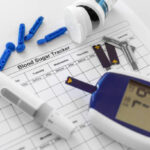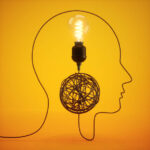In an era when everyone has the expectation of quick results and instant solutions, obesity drugs have become immensely popular. Between celebrities flaunting their dramatic transformations and ordinary folks on a last-ditch quest for a shortcut, these miracle pills and injections claim to melt away fat with little effort. That seems too good to be true, huh? And okay, here’s the kicker—while everybody’s over here raving about these unbelievable results, you know what’s a nasty side effect nary a soul is mentioning?
Doctors won’t tell you. Influencers gloss over it. Pharmaceutical companies hide it in fine print. But it is silently afflicting thousands — maybe millions — of people. So, what is this secret peril waiting in the wings of your weight loss dreams?
Quick Fix Craze: Welcome to Weight Loss Drugs
Let’s be honest. Dieting is hard. Hitting the gym consistently? Even harder. Who doesn’t want to bypass the sweat and tears for a magic pill or injection that melts away fat like butter? From Ozempic to Wegovy to Phentermine to other appetite suppressants and metabolic boosters, there is no shortage of promises of leaner bodies in weeks.
For most of these people, the drugs actually work. Pounds drop off quickly. Appetite disappears. Blood sugar levels stabilize. It’s like entering a cheat code to the body of your dreams. It’s no surprise that sales of weight loss drugs are expected to reach the billions in the coming few years.
But along with all the hype around these drugs, no one is noticing the dark price they might be paying in the background.
The Obvious Side Effects (Everybody Knows)
Sure, most people know about common side effects:
-
Nausea
-
Vomiting
-
Diarrhea
-
Headaches
-
Dizziness
-
Fatigue
They’re irritating, sure, but not overwhelming. Your doctor may caution you, and most websites list them prominently. And people brush them off because, well, losing 30 pounds seems worth a few uncomfortable days, right?
But here’s the kicker: there’s a side effect that is more dangerous and more permanent than an upset stomach.
The Side Effect Nobody Talks About: Emotional Blunting & Depression
That’s right. Now new research — alongside patient reports — is uncovering a disturbing reality: Many who use weight loss drugs experience emotional blunting, dislocation and even depression.
Everyone feels like they are a robot. No highs, no lows. Food becomes flavorless. Joy feels distant. Motivation to do the things they used to love — vanished. Some even say it feels hollow, numb, or wholly emotionally flat.
How These Drugs Fool Your Brain (And Why It Doesn’t Work)
Most drugs aimed to promote weight loss today work by manipulating brain chemistry. For example, GLP-1 receptor agonists—such as Ozempic and Wegovy—mimic a hormone that regulates appetite and insulin. They share signals with your brain like, “You’re full, stop eating.”
Sounds great on paper. But here’s the kicker — those exact same brain receptors they’re hijacking also play a crucial role in reward processing, mood regulation and emotional well-being.
Translation: The same pathways that make you feel happy, excited or satisfied are turned down. You lose the desire to binge on pizza, sure, but you also lose the ability to engage in small pleasures like laughing with friends, enjoying your favorite music or feeling truly engaged with life.
The more you lose, the more distant you may feel. It’s a kind of trade-off no one ever warned you about.
Real Stories of Emotional Numbness
Take Carla, 35, who began Ozempic to lose weight after having a child. In six months, she lost 40 pounds, but said she felt like a shell of a human being. “I was thinner but I wasn’t alive,” she wrote in an online forum. “It was just like I felt nothing; like, I had no feelings, like no good feelings; no bad feelings.”
James, 42, had a similar experience. He described feeling a profound sense of emptiness and apathy after rapid weight loss. “It was physical transformation, it was real. But emotionally, I felt I was missing part of myself.”
These aren’t isolated cases. Thousands of users are starting to emerge, asking whether the emotional cost is worth the smaller waistline.
That Vicious Cycle: Loss of Weight, Feeling, and Mental Health
What’s scarier still is that this emotional blunting can lead to more severe mental health struggles. Dulled brain reward systems increase the likelihood of developing clinical depression, anxiety and even suicidal ideation, experts say.
Your brain wants to run away from pain and run towards pleasure. When it swings too far, so that you feel emotionally flat, your motivation wanes, relationships fracture, and you wonder about whether something is wrong with you at a fundamental level.
Ironically, for most people, the weight loss victory is empty. You may have the “perfect” body, but your mind is secretly struggling.
Why No One Talks About This
So why isn’t this side-effect news?
Pharmaceutical companies have all the incentive to hush it up. Emotional side effects are more difficult to quantify, and they could deter would-be users. Nobody wants to own up to the fact they’re emotionally dead inside the skin of their dream body.
Under pressure to find quick solutions, doctors may minimize psychological effects, especially when patients are fixated on numbers on a scale.
The influencers and celebrities endorsing these drugs don’t show you the struggles behind the scenes. It destroys the sexy “before and after” story.
But more than that, society itself glorifies thinness at the expense of everything else, glossing over the emotional wreckage it leaves behind.
The Warning Signals: Is It You?
Here are some red flags to look for if you’re on (or thinking about using) weight loss medications:
-
Feeling more numb or indifferent even in happy moments?
-
You’ve been disengaged from activities, interests, or people.
-
There is a feeling of apathy or lack of connection.
-
Your mood often feels flat, with fewer highs and lows.
-
You’re only validating success through weight loss.
If you see any of these warning signs, it’s important to act before the situation gets too far out of hand.
What Can You Do About It?
First, don’t panic. There are steps you can take:
-
Communicate honestly with your doctor – Let them know about any emotional changes, even if they are subtle. A conscientious doctor would need to consider changing your dose, switching your medication or recommending other drugs.
-
Embrace the general health — Physical well-being is only one aspect of it. Our weight goals should work hand in hand with prioritizing our mental wellness, therapy, mindfulness, and supportive relationships.
-
Weekly check-in with your mood – Journal. Keep track of how you’re feeling emotionally as well as physically. Early detection of emotional side effects makes it easier to provide help.
-
Take gradual approaches to losing weight – Sustainable, gradual weight loss with a healthy diet, exercise and behavioral changes may not have the same psychological risks.
-
Support groups and forums — Engage with people in similar situations. Sometimes just knowing that you’re not alone can lighten the load.
The Bigger Conversation: What Are We Really Pursuing?
And that raises the question: Are we so obsessed with physical perfection that we’re willing to risk our emotional health to achieve it?
There is no drug, however effective, which is worth losing joy, connection and inner peace. Your mental health is as important as your waistline.
It’s time to shine a light on the other side of weight loss drugs — the unspoken side. Because being alive, being happy, being connected is the end goal, right?
Conclusion
Weight loss drugs might make you thinner, a healthier you, but the emotional cost is rarely in the conversation. Fear of emotional blunting, disconnection, and in some cases potential declines in mental health are as real risks — and should be given just as much attention as some of the physical side effects, he added. So as you embark on your health journey, just remember: wellness is mind, body and soul. Don’t reward your happiness with the lure of quick fixes.
FAQs
Could weight loss drugs trigger depression?
Yes, some users say they have experienced these effects, and some preliminary studies have suggested that some weight loss medications — specifically, those that affect appetite and brain hormones — may lead to feelings of depression, emotional numbness or emotional disconnection.
Why do weight-loss drugs make me emotionally flat?
These drugs tend to target brain pathways involved in appetite and reward. In the process, they can desensitize the very neurotransmitters that create emotional highs and motivation, which can leave users feeling emotionally blunted.
Are the emotional side effects here to stay?
For the majority of people, emotional side effects go away after stopping the medication or changing the dosage. But if untreated, persistent emotional blunting could lead to more serious mental health conditions down the road.
Is it a sign I should stop taking my weight loss medication?
Do not stop taking a prescribed medication without checking with your doctor. If you feel emotional changes, discuss them with your health care provider. They can safely modify your treatment plan.
Could there be better, safer ways to lose weight?
Yes, natural strategies — such as healthy food, consistent exercise, emotional or cognitive therapy, and behavioral change techniques — can enhance long-term fat loss without the risk of affective side effects.





